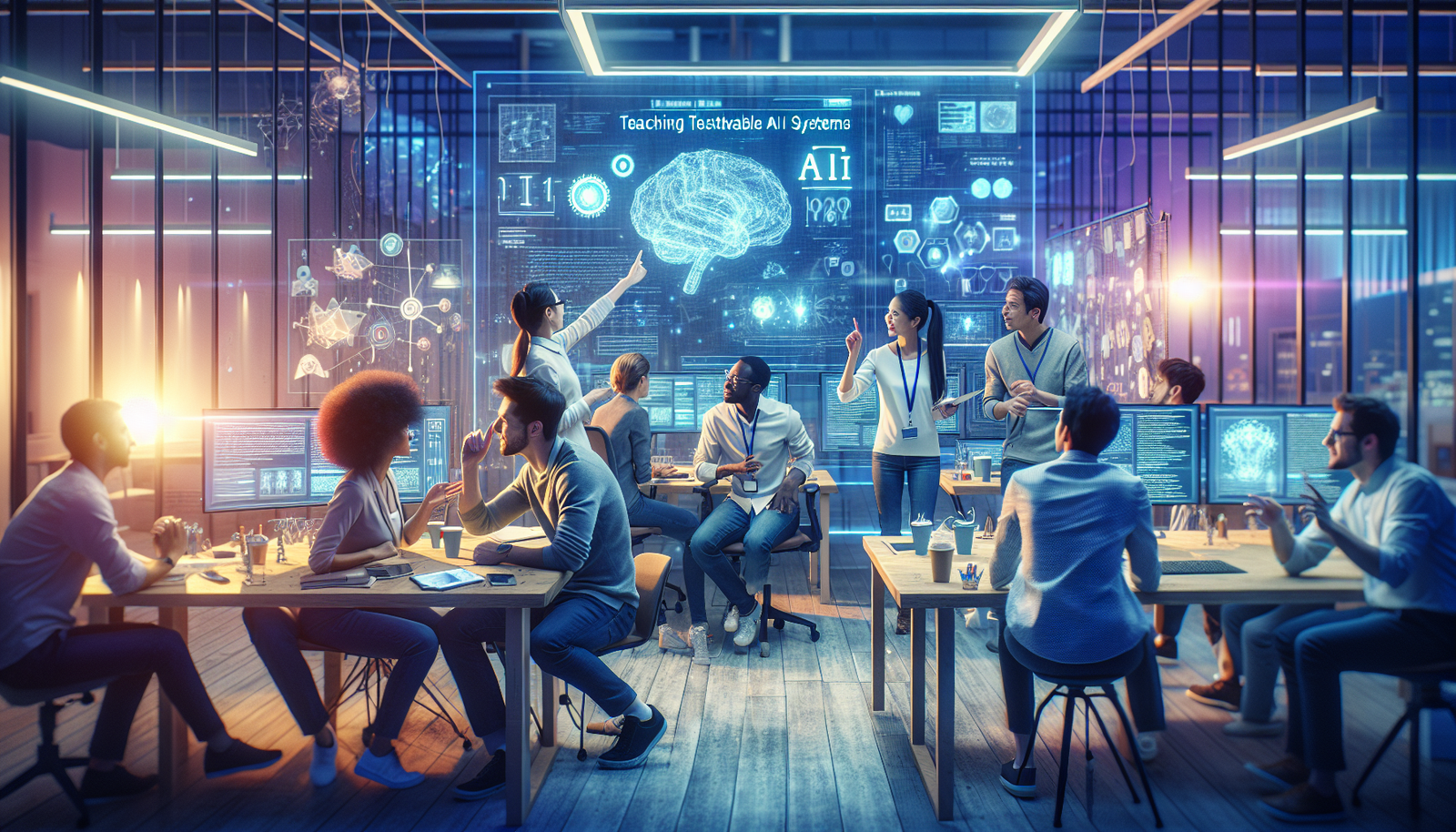The inefficiency of AI agents poses major challenges in multiple fields. Researchers from MIT are innovating to address these shortcomings through a novel method. This advancement promises to revolutionize the training of artificial intelligence systems, fostering reliability and adaptability. The recently developed algorithm optimizes the learning process, while *reducing training costs*. Each task is meticulously selected to maximize the overall efficiency of the agents, thus contributing to a more robust training.
A significant advance in reinforcement learning
Researchers from the Massachusetts Institute of Technology (MIT) have devised an innovative method to enhance the reliability of artificial intelligence (AI) agents through a reinforcement learning approach. This advancement targets various fields such as robotics, medicine, and political science, aiming to optimize decision-making by AI systems. The capability of these systems to provide relevant solutions becomes essential, particularly in complex situations like urban traffic management.
Efficiency of reinforcement learning models
Traditionally, teaching AI systems comes with considerable challenges. Reinforcement learning models, although promising, often fail when faced with minor variations in the environments for which they were trained. For example, in the case of traffic light management, an agent may struggle to handle intersections with different speed limits, number of lanes, or traffic patterns.
A new algorithmic approach
Researchers at MIT have designed an algorithm capable of strategically selecting the most relevant tasks for training an AI agent. Their method ensures that the agent can effectively handle a set of related tasks, such as the intersections of a congested city. By focusing on a reduced number of intersections that have the greatest impact on overall performance, this approach maximizes efficiency while minimizing learning costs.
Enhanced performance and efficiency gains
During testing, it was shown that this technique offers performance between five and fifty times more effective than standard approaches across various simulated scenarios. These performance gains allow the algorithm to acquire solutions more rapidly, thereby optimizing the capabilities of the AI agent.
An appealing simplicity
Cathy Wu, one of the lead authors of the study, emphasizes that this advancement results in remarkable performance improvements, thanks to a relatively simple algorithm. This simplicity promotes adoption by the scientific community, as an easily implemented solution also proves more accessible for developers.
A balanced method for training algorithms
In order to manage traffic lights at numerous intersections, an engineer typically must choose between two approaches: training an algorithm for each intersection or using a generalized approach for all. Each method presents notable drawbacks, with a colossal need for data and computations in the case of independent algorithms.
The transfer learning strategy
This research highlights a technique known as transfer learning. This involves applying a pre-trained model to a new task without further training. The researchers introduced this method within their algorithm, allowing the model to achieve remarkable results on similar tasks.
Model based on transfer learning
To identify the tasks most likely to improve overall performance, scientists developed an algorithm called Model-Based Transfer Learning (MBTL). This model assesses how each high-performing algorithm would handle specific tasks independently and how its performance would degrade if transferred to other tasks.
Improvement of training costs
The results of this method have been spectacular during simulations, achieving efficiency gains of five to fifty times compared to other approaches. Fundamentally, this method achieves the same performance levels while using significantly less data, representing a substantial advancement in the field of AI algorithms.
Future prospects
Researchers aim to adapt the MBTL algorithm to more complex problems, particularly in multidimensional task spaces. They also plan to explore concrete applications in next-generation mobility systems. This approach could transform various sectors, ranging from rural management to urban governance, by efficiently integrating AI.
The implications of this research are staggering, being partially funded by initiatives such as the National Science Foundation CAREER Award and the Amazon Robotics graduate scholarship program. Such innovations suggest a future where artificial intelligence significantly enhances human decision-making systems.
Frequently asked questions about improving AI agents by MIT researchers
What is the main advancement of MIT researchers regarding the learning of AI agents?
MIT researchers have developed an algorithm that strategically selects the best tasks to train AI agents, in order to improve their reliability and performance across various missions.
How does the algorithm proposed by MIT maximize the learning efficiency of AI agents?
The algorithm targets a subset of specific tasks that are most likely to enhance overall performance, enabling optimal results with less data and resources.
What are the benefits of transfer learning in the method developed by MIT?
Transfer learning allows a pre-trained model to be applied to new tasks without additional training, often leading to better performance on related tasks.
Why is it difficult to train AI systems to make good decisions?
The complexity lies in the ability of reinforcement learning models to handle even minor variations in tasks, which can lead to failures in making suitable decisions.
What is the application scope of the algorithm developed by MIT beyond traffic control?
Although the algorithm has been tested on traffic control, it is designed to apply to a variety of complex tasks in fields such as robotics, medicine, and infrastructure management.
How does this new approach from MIT differ from traditional methods of training AI agents?
Unlike traditional methods that favor independent training of each task or the use of global data, MIT’s method focuses on optimizing performance by wisely choosing training tasks.
What concrete results were observed during the tests of this new method?
Tests showed that the algorithm was between five and 50 times more effective than standard methods for various simulated learning scenarios.
Are the results of this research available to the scientific community?
Yes, the findings of MIT researchers have been published and presented at conferences, inviting the scientific community to adopt this new approach to training AI agents.
What future challenges do researchers foresee for this method?
Researchers plan to develop the algorithm for more complex problems and apply it to real-world situations, particularly in next-generation mobility systems.






